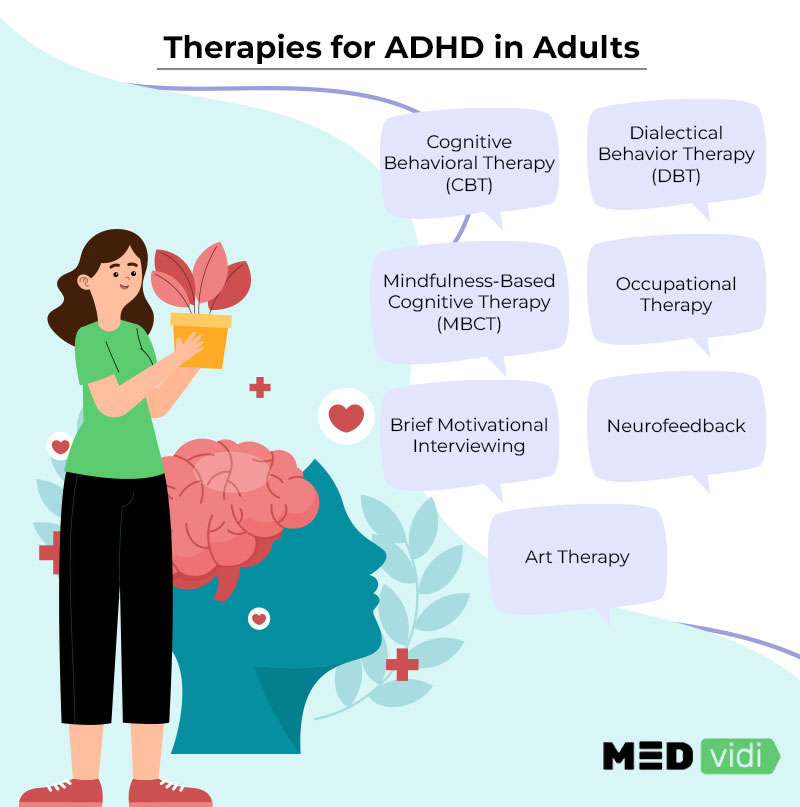Exploring Effective ADHD Therapy Options for All Ages
The intricacies of Interest Deficiency Hyperactivity Condition (ADHD) existing special challenges across various age, demanding a comprehensive exploration of efficient therapy choices. A mix of behavior modifications, pharmacological treatments, and lifestyle modifications has actually revealed promise in attending to the diverse needs of individuals with ADHD. Nevertheless, the efficacy of these approaches can differ substantially based upon personal circumstances, increasing critical inquiries about tailored techniques. As we check out the spectrum of treatment methods available, it ends up being important to think about not just their immediate effects however also their lasting implications for individuals and family members.
Comprehending ADHD and Its Effect
Attention-Deficit/Hyperactivity Disorder (ADHD) is a neurodevelopmental problem characterized by relentless patterns of inattention, attention deficit disorder, and impulsivity that can dramatically affect different facets of a person's life. It commonly materializes in youth, although symptoms can linger right into the adult years. The core symptoms of ADHD can interfere with educational performance, impede social communications, and make complex work-related ventures.
People with ADHD usually battle with preserving concentrate on jobs, organizing tasks, and following with on guidelines, which can cause scholastic underachievement (Depression Treatment). In social contexts, impulsivity may cause problems in forming and maintaining relationships, as individuals may disrupt conversations or make hasty decisions without taking into consideration consequences
Additionally, ADHD can co-occur with other psychological health and wellness problems, such as anxiety and depression, better complicating diagnosis and treatment. The variability in signs and symptom discussion means that ADHD can impact people in a different way, necessitating a customized technique to management. Recognizing ADHD's multifaceted effect is important for developing effective techniques that sustain people in navigating everyday challenges and achieving their possibility. Comprehensive understanding of ADHD's nature and implications prepares for checking out appropriate therapy options tailored to each person's demands.
Behavioral Therapies for ADHD
Many behavioral therapies have been established to successfully attend to the difficulties associated with ADHD, focusing on customizing particular actions and fostering essential abilities. Amongst the most acknowledged approaches are cognitive-behavioral treatment (CBT), parent training, and social abilities training.
CBT helps people identify and transform adverse thought patterns and habits, promoting a more favorable expectation and boosted self-regulation. This treatment typically consists of useful methods for managing impulsivity and boosting organization. Parent training programs empower caregivers by outfitting them with strategies to reinforce positive actions and established regular borders, which can be especially beneficial for children with ADHD.
Social skills training is one more vital part, training individuals with ADHD how to interact properly with peers - Depression Treatment. This approach commonly entails role-playing and responses to enhance interaction, collaboration, and conflict resolution abilities
Incorporating these behavior modifications into an extensive therapy strategy can substantially enhance functioning and lifestyle for individuals with ADHD. Ultimately, the efficiency of these treatments relies on customized strategies that take into consideration the distinct demands of everyone, consequently promoting strength and versatility in everyday life.
Medication Options Available
For lots of people with ADHD, medicine can play a significant function in taking care of signs and symptoms and enhancing overall performance. The 2 primary classifications of medications prescribed for ADHD are stimulants and non-stimulants.
Energizers, such as methylphenidate and amphetamine-based medicines, are the most commonly made use of therapies. These medications function by raising the levels of neurotransmitters, specifically dopamine and norepinephrine, in the brain, which assists boost focus and reduce impulsivity and hyperactivity. They kid psychiatrist near me frequently yield rapid outcomes, making them a preferred alternative for numerous individuals.

It is important for health care companies to conduct an extensive assessment to identify one of the most suitable medication based on individual needs, more info here clinical history, and prospective adverse effects. Regular follow-up and monitoring are also crucial to guarantee the efficiency of the picked treatment and to make any necessary changes.
Way Of Living Adjustments to Consider
Managing ADHD efficiently prolongs past medicine, as way of living modifications can dramatically boost overall well-being and symptom control. Integrating structured regimens is essential; consistent routines aid individuals with ADHD manage their time successfully and decrease sensations of overwhelm.
Regular exercise is one more vital component. Workout not just helps to enhance focus however likewise enhances state of mind and decreases stress degrees. Activities such as yoga exercise or team sporting activities can be especially valuable, advertising both fitness and social interaction.
Nutrition also plays a pivotal role. Depression Treatment. A well balanced diet plan rich in omega-3 fatty acids, entire grains, and lean proteins can contribute to improved emphasis and cognitive feature. Limiting sugar and processed foods is suggested, as these can exacerbate attention deficit disorder and impulsivity
Rest hygiene is necessary for handling ADHD symptoms. Developing a normal sleep routine and developing a relaxing environment can improve rest high quality, resulting in far better attention and psychological regulation.
Alternative and Alternative Methods
Alternate and alternative techniques to ADHD therapy provide a varied series of choices that complement standard approaches. These methods often focus on way of life alterations, nutritional interventions, and healing practices that intend to boost overall wellness while attending to ADHD signs.

Mindfulness and behavior modifications are additionally gaining grip as holistic treatments. Practices such as yoga exercise, reflection, and cognitive-behavioral therapy investigate this site can grow self-regulation and improve focus. These techniques support psychological strength, which is especially useful for people with ADHD.
Organic supplements, such as ginkgo biloba and ginseng, are sometimes explored; nonetheless, it is important to consult medical care specialists prior to including these into therapy plans. While alternative and all natural methods can supply important assistance, they need to ideally be utilized in conjunction with evidence-based treatments to attain optimum results for taking care of ADHD across every ages.
Final Thought
In recap, reliable ADHD therapy requires a thorough method that includes behavior treatments, medication, lifestyle modifications, and holistic approaches. This complex approach highlights the value of individualized care in attending to the diverse needs of people with ADHD throughout all age teams.